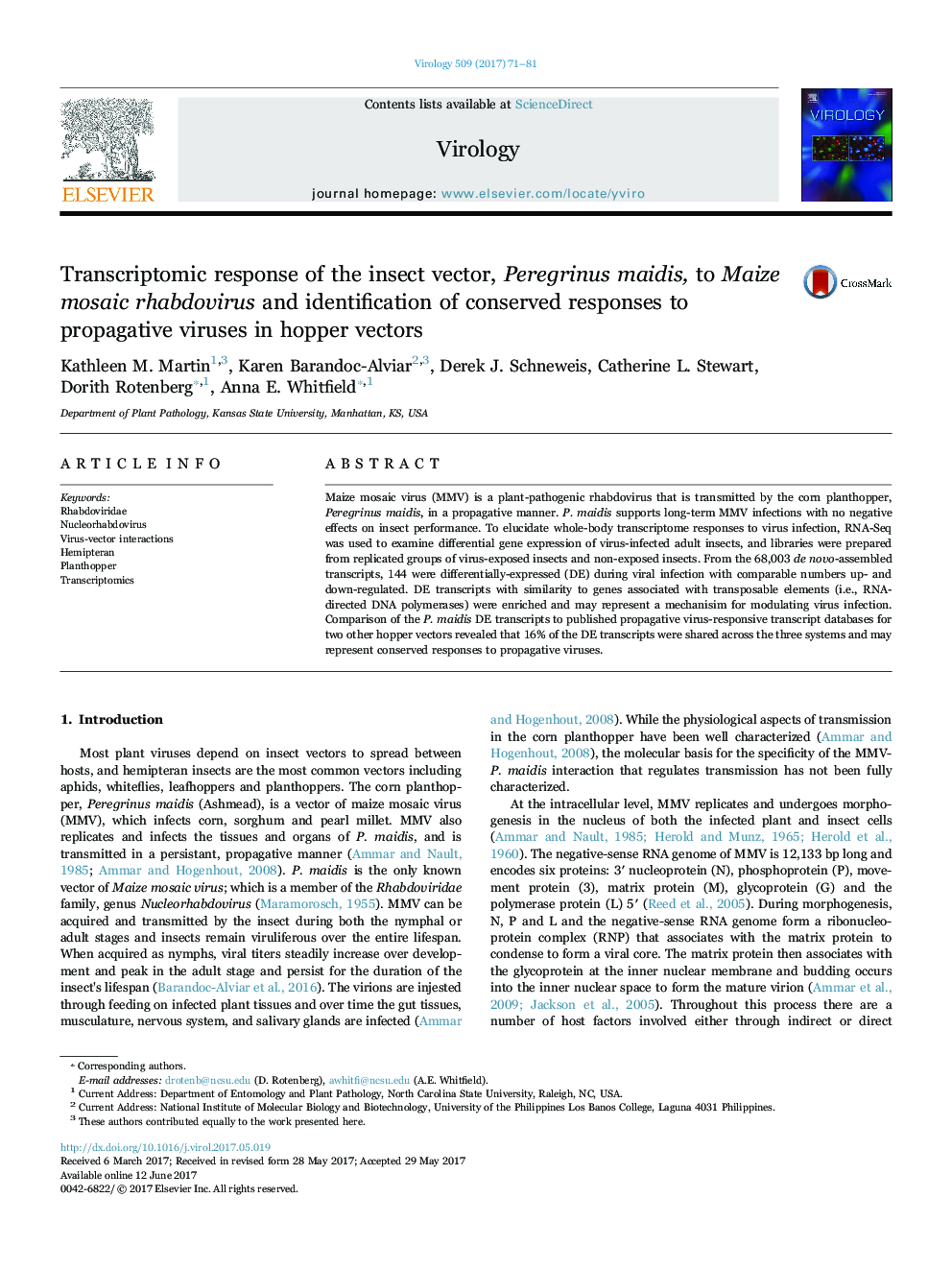| Article ID | Journal | Published Year | Pages | File Type |
|---|---|---|---|---|
| 5674915 | Virology | 2017 | 11 Pages |
â¢RNA-Seq analysis and de novo assembly of the Peregrinus maidis transcriptome generated 68,003 transcripts.â¢MMV infection altered expression of 144 transcripts, a small percentage of the transcriptome.â¢Putative transposable element transcripts were enriched and may modulate virus infection.â¢Comparison of plant/leafhopper responses to propagative viruses identified 23 common transcripts.â¢MMV expression patterns in insects is similar to that of animal- and human-infecting rhabdoviruses.
Maize mosaic virus (MMV) is a plant-pathogenic rhabdovirus that is transmitted by the corn planthopper, Peregrinus maidis, in a propagative manner. P. maidis supports long-term MMV infections with no negative effects on insect performance. To elucidate whole-body transcriptome responses to virus infection, RNA-Seq was used to examine differential gene expression of virus-infected adult insects, and libraries were prepared from replicated groups of virus-exposed insects and non-exposed insects. From the 68,003 de novo-assembled transcripts, 144 were differentially-expressed (DE) during viral infection with comparable numbers up- and down-regulated. DE transcripts with similarity to genes associated with transposable elements (i.e., RNA-directed DNA polymerases) were enriched and may represent a mechanisim for modulating virus infection. Comparison of the P. maidis DE transcripts to published propagative virus-responsive transcript databases for two other hopper vectors revealed that 16% of the DE transcripts were shared across the three systems and may represent conserved responses to propagative viruses.
